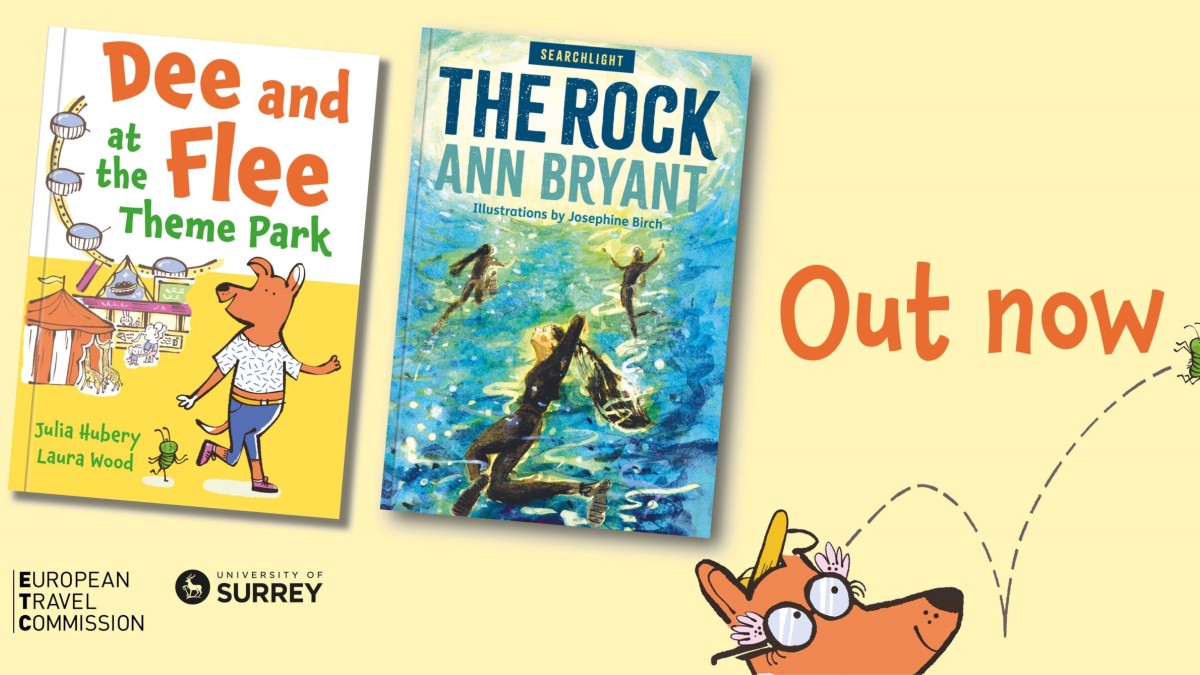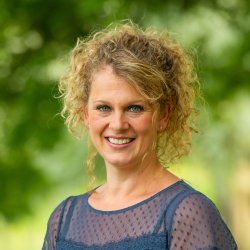European Travel Commission (ETC) and University of Surrey launch children's book series to promote careers in tourism
Today, the European Travel Commission (ETC) and the University of Surrey launch the publication of two children’s books: Dee and Flee at the Theme Park by Julia Hubery and Searchlight: The Rock by Ann Bryant. This project, founded by ETC and the University of Surrey in partnership with Graffeg Publishing, seeks to promote tourism jobs to young people as a source to learn socio-emotional skills.

This initiative was conceived as a response to the tourism industry’s staff shortage crisis which emerged following the pandemic. Many actors within the travel sector, from multinational airlines to SMEs, are struggling to attract the workforce necessary to operate their business at the usual capacity. This was felt all over Europe, and had serious implications for the post-Covid recovery of the industry.
With these children’s books, ETC and the University of Surrey aim to increase the visibility of the many skills that one can learn from a job in tourism. Both books follow characters in tourism roles, emphasising their growth in life skills such as communication, teamwork, and problem-solving as they navigate their adventures. The books are being published in conjunction with a research paper by ETC and the University of Surrey on the transferable skills gained by tourism professionals, which serves as the academic underpinning of the project.
Speaking on the publication of the first two books, ETC’s COO Teodora Marinka said:
"ETC is thrilled to launch this project dedicated to supporting the vital engine behind the tourism industry: its workforce. Ensuring a skilled and fulfilled body of European tourism professionals is crucial to the ongoing success of our industry, especially as we face the challenges of the green and digital transitions. Through this initiative with the University of Surrey, we want to engage young people’s creativity to consider the personal and professional benefits of working in the travel and hospitality sector."
Dr Brigitte Stangl, Senior Lecturer in Tourism at the University of Surrey’s School of Hospitality and Tourism Management, said:
"Working on this project has been an honour, crafting books that reveal the magic of the tourism and hospitality industry to kids. These stories not only showcase the creation of memorable experiences but also the vital life skills gained by working in this sector. Celebrating the wide range of roles performed by the unsung heroes of this industry, we underscore the pride and joy found in enhancing society's well-being. Our goal is to inspire the next generation to view tourism and hospitality as avenues for personal and societal growth, one unique experience at a time.’"
Staff shortages in tourism driven by reputational challenges
The background research addresses labour shortages in the travel and hospitality industry by investigating the sector’s reputation for employment and how this can be improved. The researchers found that tourism jobs are frequently perceived as offering lower wages, long working hours, and stressful environments. As a result, young individuals display limited enthusiasm for pursuing a career in this sector.
However, the report also analyses the transferable skills that one can learn through working in tourism and hospitality. It reveals that tourism employees learn key skills such as problem-solving, communication, customer service and multitasking. The acquisition of these skills is driven by traits inherent to the tourism and hospitality industry, including customer facing positions, job rotation, workplace diversity and close interaction between experienced and junior staff. These skills are highly transferable into other industries, being some of the most widely sought-after competencies for employees.
These findings present a clear opportunity for tourism industry advocates to use the appeal of skills learned in travel and hospitality to improve the sector's employment image. This could encourage young people to consider working in the industry, thus mitigating the risks of future staff shortage crises. The books should also create a sense of pride in parents working in the tourism sector, which can in turn be passed down to the younger generation.
Laying the groundwork for tomorrow’s skilled tourism workforce
Through this project, ETC and the University of Surrey hope to set the foundations for inspiring a new generation of young people to consider a career in tourism. As was found in the research study, presenting information about the benefits of working in tourism in a fun and engaging way is key in instilling children with a positive impression of the travel and hospitality sector.
Both Dee and Flee at the Theme Park and Searchlight: The Rock introduce their young readers to the personal and professional benefits of working in the hospitality and tourism sector through adventurous stories with fun illustrations. They encourage children to think about the day-to-day lives of people working in the travel sector and consider the skills that one can learn through this work experience. Both books also include additional activities, such as quizzes and discussion questions, to stimulate conversation about the opportunities and challenges inherent to working in tourism, and how these skills can be applied elsewhere.
The books are available to order: Dee and Flee at the Theme Park and Searchlight: The Rock
ENDS
- The European Travel Commission (ETC) represents the national tourism organisations of Europe. Established in 1948, ETC's mission is to strengthen the sustainable development of Europe as a tourist destination and to promote Europe in third markets. Its 36-member tourism boards work together to build the value of tourism for all the diverse European destinations through cooperation in sharing best practice, market intelligence and promotion. For more information, visit www.etc-corporate.org and follow @ETC_Corporate.
- The University of Surrey’s world-leading research and highly employable graduates are contributing to how our society adapts and solves the global challenges facing humanity – delivering sustainable growth, ensuring the future of Artificial Intelligence is people-centred and pushing the boundaries of our understanding of the ways human and animal health interact to identify and solve the problems of the future. Working across disciplines and in global partnerships, we’re focused on helping people and societies live better, more sustainable lives.
Featured Academics
Media Contacts
External Communications and PR team
Phone: +44 (0)1483 684380 / 688914 / 684378
Email: mediarelations@surrey.ac.uk
Out of hours: +44 (0)7773 479911
